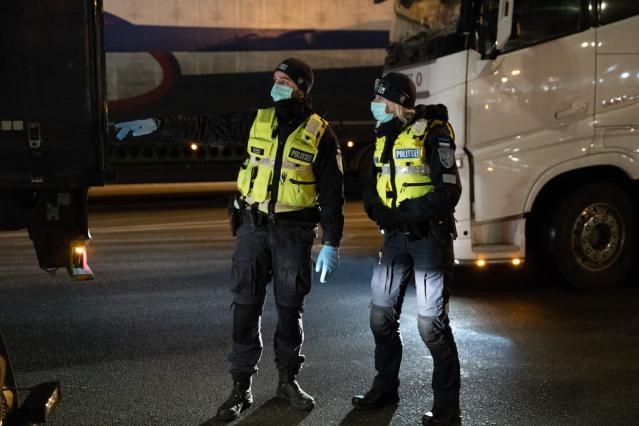WSi News2021-04-20 10:47:25
Fight against organised crime: New 5-year strategy for boosting cooperation across the EU and for better use of digital tools for investigations
The European Commission is presenting a new EU Strategy to tackle Organised Crime, focusing on boosting law enforcement and judicial cooperation, tackling organised crime structures and high priority crimes, removing criminal profits and ensuring a modern response to technological developments. Organised crime groups continue to develop and evolve, as shown by their rapid adaptation to the coronavirus pandemic, for example through the increase in counterfeit medical products and online crime. Organised crime groups active in Europe are involved in a variety of criminal activities, with drugs trafficking, organised property crime, fraud, migrant smuggling and trafficking in human beings being prevalent. In 2019, criminal revenues in the main criminal markets amounted to 1% of the EU's GDP, i.e. €139 billion.
The Strategy sets out the tools and measures to be taken over the next 5 years to disrupt the business models and structures of criminal organisations across borders, both online and offline.
Vice-President for Promoting our European Way of Life, Margaritis Schinas, said: “Criminal syndicates increasingly use new technologies and seize any opportunity to expand their illegal activities, online or offline. The recent emblematic cases like EncroChat have exposed how sophisticated these organised crime networks are. This shows how important our efforts to tackle organised crime across borders are. Today's Strategy will help hit these criminals where it hurts the most, by undermining their business model which thrives on a lack of coordination between states.”
Commissioner for Home Affairs, Ylva Johansson, said: “We clearly need to step up to fight organised crime groups. They are among the biggest threats to our security. They are highly professional and transnational: 70% of criminal groups are active in more than 3 Member States. They quickly adapted to the pandemic, moving online and selling fake or non-existent cures. We have already detected attempted scam sales of over 1 billion vaccine doses. Our strategy is a 5-year programme to strengthen European law enforcement in the physical and the digital world. With the measures we're proposing today, we'll be moving from occasional police cooperation to permanent police partnerships, and we'll follow the money to catch criminals in financial investigations.”
The Strategy aims to:
Boost law enforcement and judicial cooperation: With 65% of the criminal groups active in the EU composed of multiple nationalities, effective exchange of information among law enforcement and judicial authorities across the EU is key to effectively tackle organised crime. The Commission will expand, modernise and reinforce funding for the European multidisciplinary platform against criminal threats (EMPACT), the structure that since 2010 brings together all relevant European and national authorities to identify priority crime threats and address them collectively. The Commission will propose to upgrade the ‘Prüm' framework for exchanging information on DNA, fingerprints and vehicle registration. To make sure that law enforcement across the EU can work together better under a modern rulebook, the Commission will propose an EU Police Cooperation Code which will streamline the current patchwork of various EU tools and multi-lateral cooperation agreements. Achieving the 2023 objective to make information systems for security, border and migration management interoperable will help law enforcement better detect and combat identity fraud often used by criminals. Finally, to better tackle criminal networks operating internationally, the Commission is also proposing today to start negotiating a cooperation agreement with Interpol.
Support more effective investigations to disrupt organised crime structures and focusing on high and specific priority crimes: There is a need to step up cooperation at EU level to dismantle organised crime structures. To ensure an effective response to specific forms of crime, the Commission will propose to revise the EU rules against environmental crime and will establish an EU toolbox against counterfeiting, notably of medical products. It will present measures to address the illicit trade in cultural goods. The Commission is also presenting today a Strategy dedicated to combatting trafficking in human beings.
Make sure crime does not pay: Over 60% of criminal networks active in the EU engage in corruption and more than 80% use legitimate businesses as a front for their activities, while only 1% of criminal assets is confiscated. Tackling criminal finances is key to uncover, punish and deter crime. The Commission will propose to revise the EU rules on confiscating criminal profits, develop the EU anti-money laundering rules, promote the early launch of financial investigations and assess the existing EU anti-corruption rules. This will also help prevent infiltration into the legal economy.
Make law enforcement and the judiciary fit for the digital age: Criminals communicate and commit crimes online and leave digital traces online. With 80% of crimes having a digital component, law enforcement and the judiciary need swift access to digital leads and evidence. They also need to use modern technology and be equipped with tools and skills to keep up with modern crime modi operandi. The Commission will analyse and outline possible approaches to data retention as well as propose a way forward to address a lawful and targeted access to encrypted information in the context of criminal investigations and prosecutions that would also protect security and the confidentiality of communications. The Commission will also work with relevant EU Agencies to provide national authorities with the tools, knowledge and operational expertise needed to conduct digital investigations.
For more information contact:
